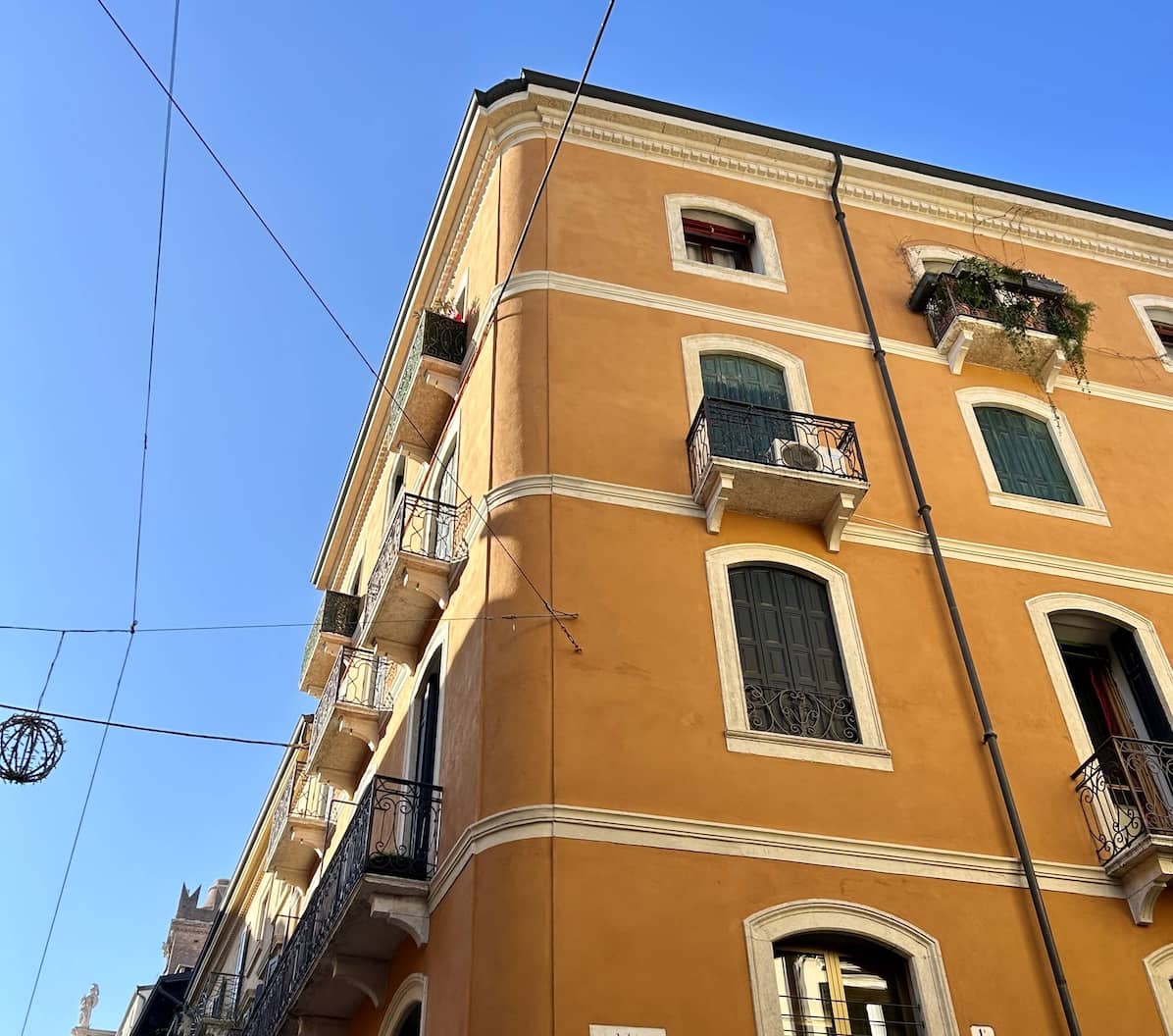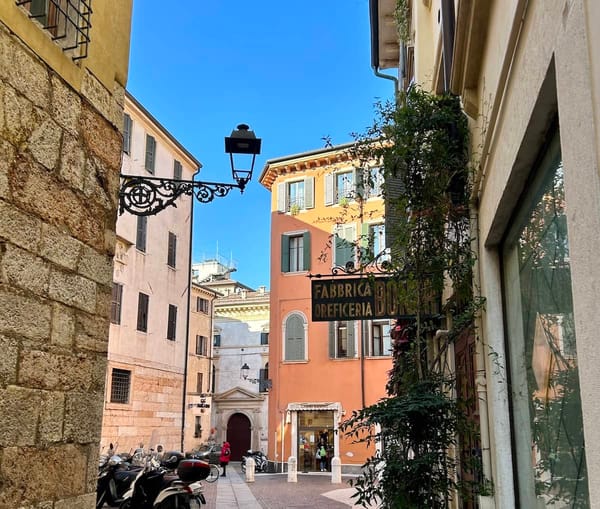How Long Does It Really Take To Learn Italian?
What I wish people told me before moving to Italy as an American.

- Adjust Your Definition of Fluency
- Account for Local Dialects
- Carve Out Time to Speak Italian Every Day
Some of the links in this post are affiliate links. If you make a booking through these links, I may earn a small commission at no extra cost to you.
When I moved to Milan in early 2022, I must have googled this question at least a dozen times.
As a dual US-Italian citizen who grew up around Italian-speaking family members, I knew that I would learn Italian one day. I just didn't know when that day would come!
Unfortunately, I still don't know when that day will come. My internal goal post for what qualifies as "fluent" in Italian is constantly shifting, and I'm now measuring my progress in dinner parties attended and books completed rather than words memorized or exams passed.
Here are three reasons why it might take you years to truly feel fluent in Italian, and what you can do to accelerate your progress.
Adjust Your Definition of Fluency
I've noticed that many English speakers, especially those from North America, have a warped view of what it means to reach fluency in another language. I held this warped view myself when I was younger, likely due to how ubiquitous English was in my day-to-day life in California.

When I attended university in California, I had several friends and colleagues from non-English-speaking countries. I remember being shocked when one of my best friends, who had lived in the United States for three years and spoke excellent English, did not know the English word for "tent". The realization that my friend was still learning new words in English, even after years of study and immersion, completely shattered my rigid definition of fluency.
When the official language of your country also happens to be your native language, it's easy to assume that "fluency" has a one-size-fits-all definition. However, many countries—including Switzerland, Lebanon, and Canada—have multiple official languages, and it's rare for residents to use all languages at the same level. Instead, some people might grow up speaking one language at home, have conversational skills in a second, and only understand how to read recipes in a third.
Reaching and maintaining fluency in Italian as an adult will require life-long learning and effort.
When you're learning a new language as an adult, have patience with yourself. Reaching and maintaining fluency in a new language is a lifelong marathon, not a sprint to the top of a mythical mountain. You will never "arrive" at fluency; you'll just notice that Italian conversation gets a little easier day by day.
Account for Local Dialects
All Italians are from Italy, but not all Italians speak the same version of Italian.
Unlike English dialects, Italian dialects are essentially different languages. For example, in the Southern Italian region of Puglia, if you want to say "It's over there", you'll say "Sta ddai". The sentence structure and vocabulary are completely different from the version you'll learn in Italian school, which is "È lì".
Unless you're moving to Tuscany—the region most closely associated with "standard" Italian—you'll likely need to learn the local dialect in addition to the standard Italian you learn in school.
Certain cities and regions, such as Naples, Sicily, and Puglia, are famous for their local dialects and unique vocabularies. Your friends might make an effort to speak standard Italian with you, but it will be useful to learn the local dialect when interacting with large groups or attending public events.
Fortunately, Italians love sharing their unique dialects with foreigners; all you need to do is make a local friend!
Carve Out Time to Speak Italian Every Day
If you'll be moving to Italy as a graduate student or as a remote worker, do not underestimate just how much speaking English (or another language) for 8+ hours per day will derail your Italian progress. You won't simply absorb the language by living in Italy; language learning requires active and concerted effort.
I work remotely in Italy for an English-speaking company, and I also live alone. The only built-in chances I have to practice my Italian during the day are when I'm ordering my morning cappuccino or chatting with my neighbors. All other language-learning opportunities have to be intentionally sought out or scheduled.
If you're a native English speaker, you'll also notice that many Italians will switch to English when they hear your accent. Don't do it! You have to be intentional about continuing in Italian, even when they reply to you in perfect English.

To speak Italian freely, your brain needs to develop a habit of reaching for Italian words and grammar structures instead of your native ones. The only way this will happen is through thousands of hours of active use and practice.
I have a couple of friends who achieved conversational fluency in under two years, but the first friend was an exchange student, and the second was a housewife with a local spouse. Both of them spent the majority of their days studying the language and interacting with locals, and they also lived with families and partners who spoke the local language.
Immersion is key, but it's not possible for everyone. If you have a full-time job and will be learning Italian without the help of an Italian partner or immersion course, do not underestimate the sheer number of hours required to feel comfortable using Italian in daily life.
Sometimes, when I think I've made great strides with my Italian, I get an unprompted call from my TIM telecom representative and feel like I've been transported back to level A1. Speaking Italian on the phone without hand gestures is a whole new level of hard.
Fortunately, after living abroad for several years in two non-English-speaking countries, I no longer hold myself to the impossible standard of being perfectly "fluent" in another language. I've accepted that learning Italian will take years of active effort, and it's best to keep the learning process fun and lighthearted.
After two years in Italy, I can attend Italian dinner parties and game nights, watch The Office with Italian subtitles, and read Italian subreddits. I'm still not "fluent", but I'm enjoying the ride.





